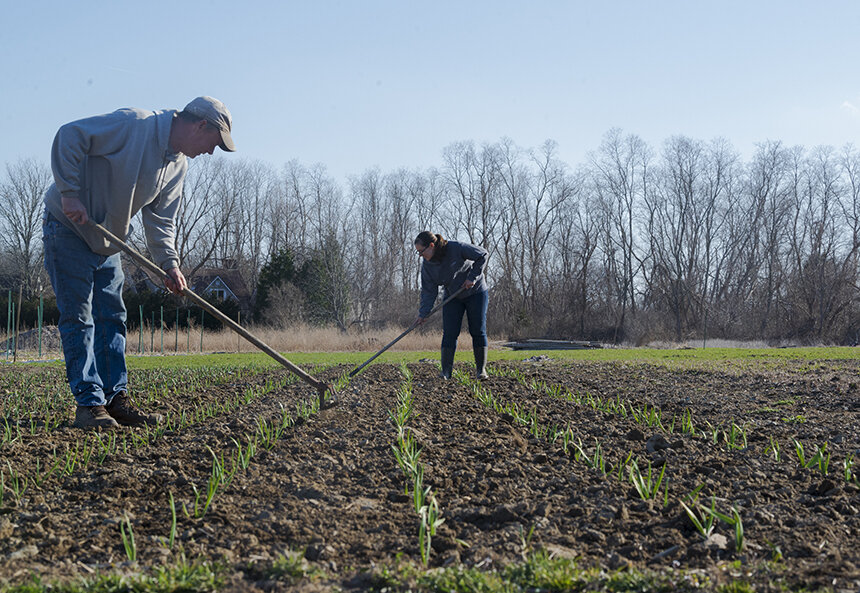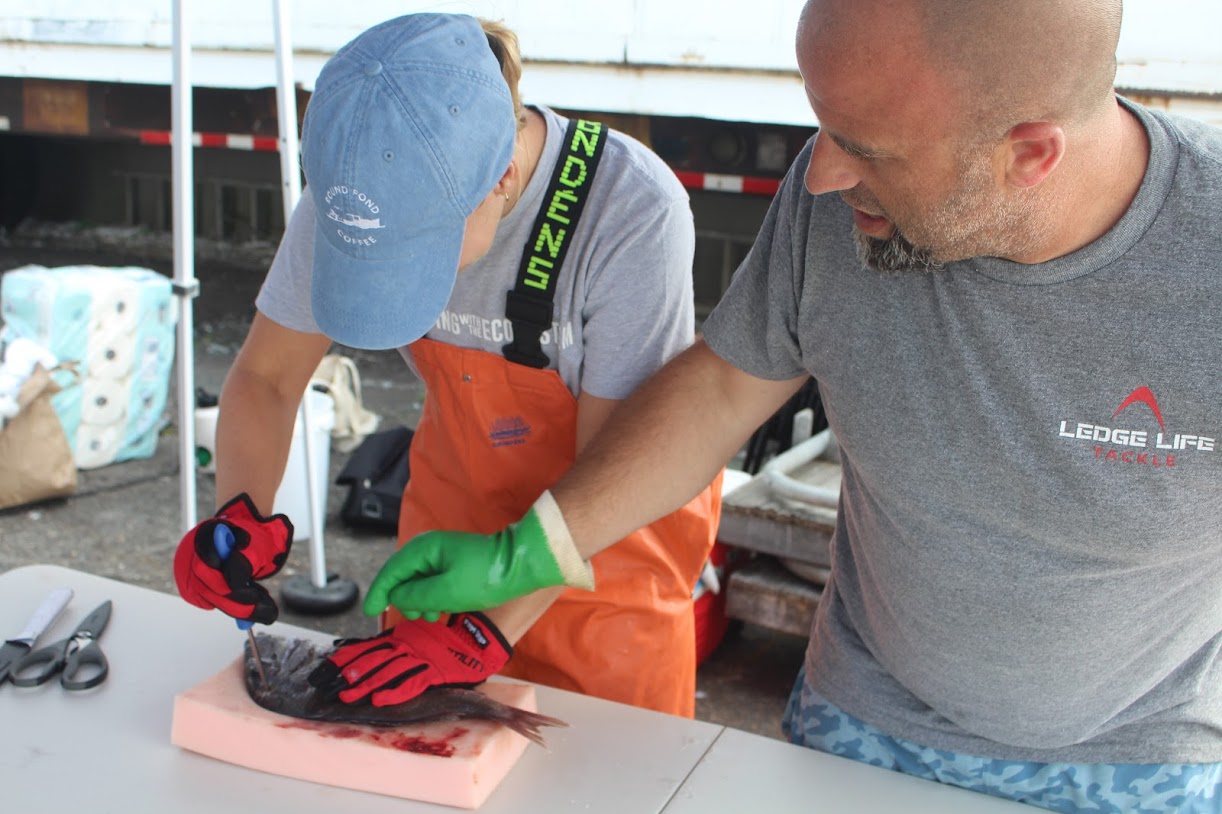Organic Farming Growing Fast Locally
March 24, 2011
Organic farming has become one of the fastest growing segments of U.S. agriculture. For the past six years, every state has featured certified organic practices. In fact, farmland under organic management has grown steadily for the past decade, and this national trend holds true here in Rhode Island.
The number of organic-certified farms in the state has increased from eight in 2002 to 22 this year. In all, Rhode Island now features 26 operations that are organic certified, including four coffee roasters — Custom House Coffee, Coastal Roasters, Excellent Coffee Co. and New Harvest Coffee Roasters. Farming Turtles in Exeter is certified as both a farm and handler.
Organic farming has been practiced in the United States since the late 1940s, but to meet an explosion in consumer demand in both local and national markets, certified organic crop acreage more than doubled between 1992 and 1997. It doubled again between 1997 and 2005. The U.S. organic farm sector now features a broad mix of farm sizes and production specialties, and includes many farms that manage both organic crop and livestock operations.
Organic foods now occupy prominent shelf space in the produce and dairy aisles of most mainstream food retailers. Consumer demand has pushed retail sales of organic foods to $21.1 billion in 2008.
Organic products are available nationwide in nearly 20,000 natural food stores and in nearly three out of four conventional grocery stores, according to the U.S. Department of Agriculture (USDA). Organic sales now account for more than 3 percent of total U.S. food sales, according to recent industry statistics.
Fresh fruits and vegetables have been the top selling category of organically grown food since the organic food industry started retailing products more than three decades ago. Produce accounted for 37 percent of U.S. organic food sales in 2008, followed by dairy (16 percent), beverages (13 percent), packaged and prepared foods (13 percent), bread and grains (10 percent), snack foods (5 percent), meat, fish and poultry (3 percent) and condiments (3 percent).
Most organic sales — 93 percent — take place through conventional and natural food supermarkets and chains, according to the Organic Trade Association. The association estimates the remaining 7 percent occurs mostly through farmers’ markets, which have grown steadily in the United States, from 1,755 markets in 1994, when the USDA began to keep such statistics, to about 5,000 now.
There are about 100 private companies and state organizations, including the Rhode Island Department of Environmental Management (DEM), that have been accredited nationwide by the USDA to conduct organic certification programs.
The DEM charges $200 for an organic certification, which lasts a year. All organic operations must submit an application annually and get inspected at least once, according to Matthew Green, who directs the DEM Division of Agriculture’s organic certification program.
“Organic farming supports sustainable methods that improve our environment, improve the quality of soil and prevents runoff of harmful chemicals and pesticides,” he said. “It’s the production of healthy food.”
The steps to become a certified organic farming or handling operation include filling out the in initial application — which Green said is the most challenging part — picking an organic certifier, following national organic standards, keeping records of practices and materials used and having an annual inspection. Also, a three-year transition period is required for land used in organic production.
National organic standards address the methods, practices and substances used in producing and handling crops, livestock and processed agricultural products. Although specific practices and materials used by organic operations may vary, the standards require every aspect of organic production and handling to comply with the provisions of the Organic Foods Production Act (OFPA), which Congress passed in 1990.
Organic crops are raised without using most conventional pesticides, petroleum-based fertilizers or sewage sludge-based fertilizers. The use of genetic engineering and ionizing radiation is prohibited. Soil fertility and crop nutrients have to be managed through tillage and cultivation practices, crop rotations and cover crops. Crop pests, weeds and diseases must be controlled primarily through management practices, including physical, mechanical and biological controls.
Labeling standards are based on the percentage of organic ingredients in a product. Products labeled “100 percent organic” must contain only organically produced ingredients. Products labeled “organic” must contain at least 95 percent, and products that contain at least 70 percent can use the phrase “made with organic ingredients.”
Livestock standards say that animals for slaughter must be raised under organic management from the last third of gestation, or no later than the second day of life for poultry. Producers are required to feed livestock agricultural feed products that are 100 percent organic, but may also provide allowed vitamin and mineral supplements.
Producers may convert an entire, distinct dairy herd to organic production by providing 80 percent organically produced feed for nine months, followed by three months of 100 percent organically produced feed. Organically raised animals may not be given hormones to promote growth or antibiotics for any reason.
Producers are prohibited from withholding treatment from a sick or injured animal; however, animals treated with a prohibited medication may not be sold as organic. All organically raised animals must have access to the outdoors, including access to pasture for ruminants.
Categories
Join the Discussion
View CommentsRecent Comments
Leave a Reply
Your support keeps our reporters on the environmental beat.
Reader support is at the core of our nonprofit news model. Together, we can keep the environment in the headlines.
We use cookies to improve your experience and deliver personalized content. View Cookie Settings




The RI Northeast Organic Farming Association of RI (NOFA/RI) offers technical assistance to organic and transitioning farmers in the form of on-farm workshops, farm advisors, and advanced growing seminars. For more information, go to http://www.nofari.org or email [email protected] .
Organic farming is increasing among farmers and they are adopting this method. This is a more safer way of farming than conventional ones where they have to deal with harmful chemicals. By using natural composts and manure it is easy to cultivate crops. Even to increase the nutrient content of the soil crop rotation is necessary.